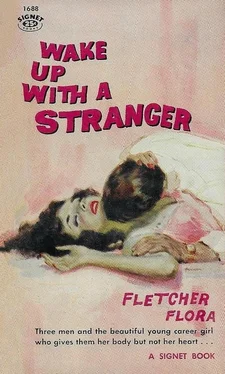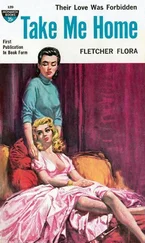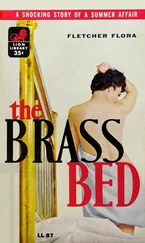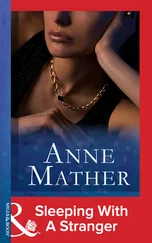She received his judgment with no sense of shock, as if, after all, it was of little importance. Anyhow, nothing had been said that she had not anticipated and been prepared for. Smiling faintly, she stood up.
“In that case, I’ll not waste any more of your time. Thank you for being honest with me.”
“Please.” He lifted a hand and looked at her, and after a moment she sat down again in the chair. “As I indicated previously, I am not always so conservative as an individual as I am as a banker. When Earl Joslin talked with me about this, he suggested two alternatives to a bank loan. One was a personal loan. The other was that I buy the shop myself and let you manage it. I am willing to consider either of these alternatives, but I confess that the latter appeals to me more. If I am to gamble, I want it to be for high stakes, and the profit from the business — if it were to be as successful as both you and Earl expect — would be far in excess of legal interest. I’d have little or no time to devote to the enterprise and would be dependent upon you, on whom I’d be gambling. Would you consider such an arrangement?”
“Yes. Mr. Joslin also suggested that possibility to me. I told him then that I was agreeable, and I still am. The truth is, of course, that I would consider it an extremely good opportunity.”
“Good. You understand, I hope, that I’m not committing myself. I’ll check thoroughly and consider carefully, and I reserve the right to decide on either the loan or the purchase, or neither.”
“That’s understood.”
“In that case, I’ll let you know my decision as soon as possible.”
She inferred from this that the interview was at an end. She stood up, and he stood up after her, and she offered her hand again to the cool, dry contact of his.
“You have been very considerate,” she said. “Thank you very much.”
“Don’t thank me yet.” He shook his head and smiled. “Perhaps it will come to nothing, and you will have nothing to thank me for. Goodby, Miss Buchanan.”
On the street, she felt a singing sense of exhilaration and a lightness of body that made every step seem ludicrously high and long, as if she had to force her feet to earth against a tendency to float. At a corner she paused and considered where she should go and what she should do. If she returned to the shop, she would have to tell Gussie about the interview, and this she did not want to do, not because she did not want Gussie to know, but simply because the exhilaration, the singing sense of good feeling, would surely deaden and dissipate if it were touched by words, and she wanted to hold it as long as she could. She did not, however, want to be alone. She wanted someone with her, someone to talk with and to touch and possibly to love — and the one she wanted, she realized suddenly, was Enos Simon. She would return to her apartment, she thought, and perhaps call the school; and she would walk the long way to her apartment because she was feeling wonderful on a wonderful day and simply preferred walking to riding.
She walked steadily for a long time, but, slowly, as she walked, her euphoria and effervescense diminished as her body tired. By the time she reached the apartment she was depressed, and convinced that she had allowed herself to be deceived by an attempt at kindness, which if it was only that was really cruelty. The more depressed and hopeless she became, the more she wanted someone with her — not just anyone but Enos Simon specifically.
William Walter Tyler, behind his desk, sat and watched the pattern of light on the heavy carpet. It was quite still in the room. From the outer office and the bank and the street, no sound penetrated. The horizontal bars had moved a little, a little farther out upon the carpet, and would soon disappear.
He thought with a stirring of quiet bitterness that a man was entitled to a time of peace. After a while, after the passing of so many years, the feelings of hunger and emptiness should pass and leave a man alone. He was forty-eight, and he had thought indeed that he had reached the time that was surely the right of every man — a time if not of peace at least of quiet, if not of fulfillment at least of the absence of nagging desire. Now he knew that such a time had not come to him. He watched the pattern of light, the sign of the sun that rose and set. He remembered a young woman with a restless feeling he should never have felt. A young woman, hardly more than a girl, with a supple body that housed needs he could never meet because it was, for him, simply too late. That is what he told himself, that it was simply too late. But he watched the pattern and did not move, and remembered her face and hands and voice.
He had twice before been disturbed in the way he was now disturbed, once by a child when he was a child, and once by a woman when he was a man. The child had been fifteen; he had loved her; and she had died. She had been, in fact, the cook’s daughter, coming now and then to the Tyler home, but he had hardly even spoken to her, because he wasn’t allowed to fraternize with servants’ children. When she came, she always remained in the kitchen, or in the garden just outside the kitchen door, and she was, he thought, the most beautiful girl he had ever seen. Having been taught by his mother to be a snob, he could not understand why a person of his social position should be so affected by the daughter of a cook. He suffered intensely, as a young boy suffers. Sometimes he lay in bed at night and remembered her as he had seen her in the garden, he thought that his heart would literally burst. It was then that he learned something of the nature of pain, that it was an immensely complex and irrational reaction.
He suffered from loving her, and the suffering was ecstasy, but then she died, and he suffered still, but there was no ecstasy in it any longer. His anguish was secret and somehow shameful, so intense and shattering that it was like a brutal physical violation of his incipient manhood. In his room, he wept. In his heart, he despised himself because by his snobbishness he had deprived himself of a friend, or the more that she might have been. When she was buried, the Tyler family sent a magnificent arrangement of white carnations, and Mr. Tyler, William Walter’s father, attended the funeral as the representative of the family.
She died of tetanus. Trying to understand why it was necessary for her to die at all, William Walter saw it in its simplest terms as a mortal conflict between a beautiful girl and a microscopic bug. The bug had been the victor, that was certain, and since he had been taught that God took a personal interest in such matters, he could only assume that God had been on the bug’s side. This thought was not original with him. It was something he had heard or read, the effect of a similiar experience related by someone else. It was an intolerable assumption, however, one which he could not accept; neither could he subscribe to the hypocrisy that such things happened for the best in God’s design. The truth of it, so far as he could see, was that God was compassionless, remote and unconcerned, if not impotent, and beyond the reach of supplication. This was a belief he always held afterward, the only tenable one in his judgment. The Tylers had been Episcopalians for generations, and he remained an Episcopalian, attending and supporting the church but accepting little that was taught in it.
The second person to disturb him comparably, quite a long time later, was the young woman he married. He met her at a tea dance to which he had gone reluctantly. She was a cousin of his hostess, her house guest, and her name was Harriet Cochran. Her family was wealthy, though not nearly so wealthy as the Tylers; and when he looked at her, he thought of expensive crystal gleaming in candlelight. That was an understandable response to her particular kind of loveliness, for she gave a deceptive impression of cool and detached delicacy. Actually, she was physically strong, and psychically she was both strong and resourceful. William Walter fell in love with her immediately, which was disturbing but not unpleasant, for love is unpleasant only when it is frustrated or dying. She responded to him promptly, with restraint, and was obviously prepared from the beginning to marry him. Their courtship fell just short of formality, all things always in the best of taste; they were united eventually in a grand ceremony and went to Europe on their honeymoon. The union was approved by both families, and everyone considered it especially fortunate.
Читать дальше












